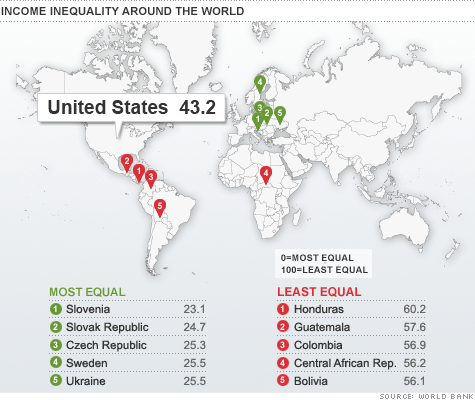What are the social effects of income inequality?
A current study being conducted by
Ioana Pop is trying to connect income inequality to work performances in society. So far, they have found correlation between work performance and social problems such as physical and mental health, violence, and educational performance. The wider the income gap the more each of these social problems are affected negatively.
Can income inequality affect your health?
The answer is yes! The pressure and stress for lower income families can be caused by having to find ways to get the bills paid. Plus, who knew that financial stress could lead to an earlier death? Besides health related issues, income inequality has also been matched to crime rates, high school drop-out rates, and teen pregnancy.
I'm beginning to believe that the social effects of income inequality are endless! After dissecting different research, I've found that income inequality can be linked to many illnesses and disorders in many ways.
Below are some charts showing the correlation of different lengths of income inequality




Essentially what these graphs show is that when the income inequality is lower in certain states and countries around the world, people are better off: homicide rates are lower, there are less drop outs, life expectancies are higher. Even if the states or countries aren't as rich, the fact that the income inequality is lower greatly contributes to the well being of the people in that area.











